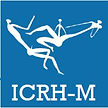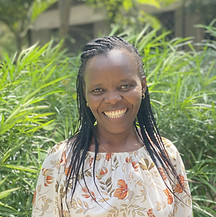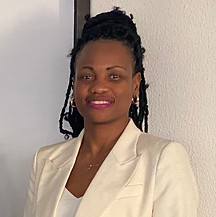
Explained in 2 mins
2023 update
Explained in Words
The INSPIRE project is informed by the initial Catalyst project and takes place across two new sites (Kenya and Mozambique) through partnership with Aga Khan University - East Africa, the International Centre for Reproductive Health - Mozambique and the Helen Hamlyn Centre for Design, Royal College of Art. INSPIRE aims to work with young mothers and other key stakeholders to develop a solution to promote the mental wellbeing of adolescent girls during pregnancy and the year after birth. The project brings together approaches from human-centred design, systems thinking and implementation science, in two phases, to develop an intervention and test it.

Where does it take place?
Health and community settings in Tete Province, Mozambique and Kilifi County, Kenya.
Who has been invited to take part?
Adolescent mothers (aged 15-19 years), their partners and families, service providers, health systems representatives and community influencers.
What’s happened so far?
In Phase 1, we partnered with over 163 adolescents and other stakeholders to develop the intervention. First, interviews, observations and group discussions were used to identify the challenges, needs, and priorities of adolescents during pregnancy and the year after birth. Next, a series of workshops were conducted to agree priority challenges to address.

With these priorities in mind, we worked with adolescent girls and other stakeholders to brainstorm potential solutions and develop them through prototyping. It was important that adolescent girls, their partners and families and the wider community liked the solutions and saw the importance of providing them. We also worked hard to make sure our solutions could be delivered by the community with the resources available to them.
When we started, we weren’t sure that one solution would work in both countries but through this process it became clear that the challenges and priorities were shared. The Thriving Mamas programme (known as Malkia wa Malengo in Kenya and Kuthandizana in Mozambique) is a set of group, individual, and family meetings designed to prepare adolescent girls for pregnancy, childbirth, and parenting. In addition, there is a strong focus on building girls’ life skills (such as problem-solving, building supportive relationships, and planning for the future). The programme is tailored to each girl through individual meetings where girls can discuss their own situation and specific needs and receive mental health screening and referrals where appropriate. Meetings are facilitated by mentor mothers, women in the community who have experience of motherhood and are committed to supporting adolescent mothers to thrive.

What’s happening next?
In October 2023 we started delivering the Thriving Mamas programme to 40 adolescent girls in Kenya and Mozambique. Throughout the programme we learnt from the girls, mentor mothers, and family members what works and what needs to be improved. We are reviewing the information we've gathered to better understand how the programme affects their mental wellbeing and other outcomes to help us prepare for a future trial.
What is the potential impact?
Our research will result in the development of an intervention(s) that supports adolescent maternal wellbeing and gives adolescent mothers the hope and skills to build a better life for them and their children. By using human-centred, systems-minded design to understand the needs and priorities of young mothers and the health and community systems in which they live, the intervention developed and the consideration for the context in which they take place mean that there is potential for the intervention to be used beyond Mozambique and Kenya. We are currently trying to understand if the Thriving Mamas programme might help adolescent girls in the UK (INSPIRE UK).
Read
Mozambique Team
Dr Málica de Melo
Co-Investigator
Mozambique Site Lead
Dr Flavio Mandlate
Fernando Chissale
Local Mental Health Lead
Project Coordinator

Kenya Team

Prof Marleen Temmerman
Co-Investigator
Kenya Site Lead
Margrette Hanselmann
Project Coordinator
Evaline Lang'at
Scientific Lead

Lucy Nyaga
Research Assistant
Past Contributors
Domingos Mahangue
Site Coordinator (Mozambique)
Suzanne Dodd
Research Assistant
(UK)
Aline Alonso
HCD Co-Lead
(Mozambique)
Maria Milenova
Doctoral Student
(UK)
Sarah Kinja
Research Assistant (Kenya)
Mark Nyalumbe
Research Assistant (Kenya)
Dr Jonathan West
Co-Investigator, HCD Lead
(UK)
Katie Atmore
Scientific Coordinator
(UK)
Ela Neagu
HCD Co-Lead
(Kenya)
HCD Co-Lead
(Kenya)
Atanasio Bene Magestade
Mellan Lilumbi
Research Assistant (Kenya)
_edited_edi.png)
Tom Stables
HCD Advisor
(UK)
Matilde Bessitala
Research Assistant
(Mozambique)
Special Interview Series:
With our Principal Investigator Dr Tatiana Salisbury
The less known journey of our principal investigator, and her passion about INSPIRE!



_edited.png)
.png)










_edited.jpg)
















